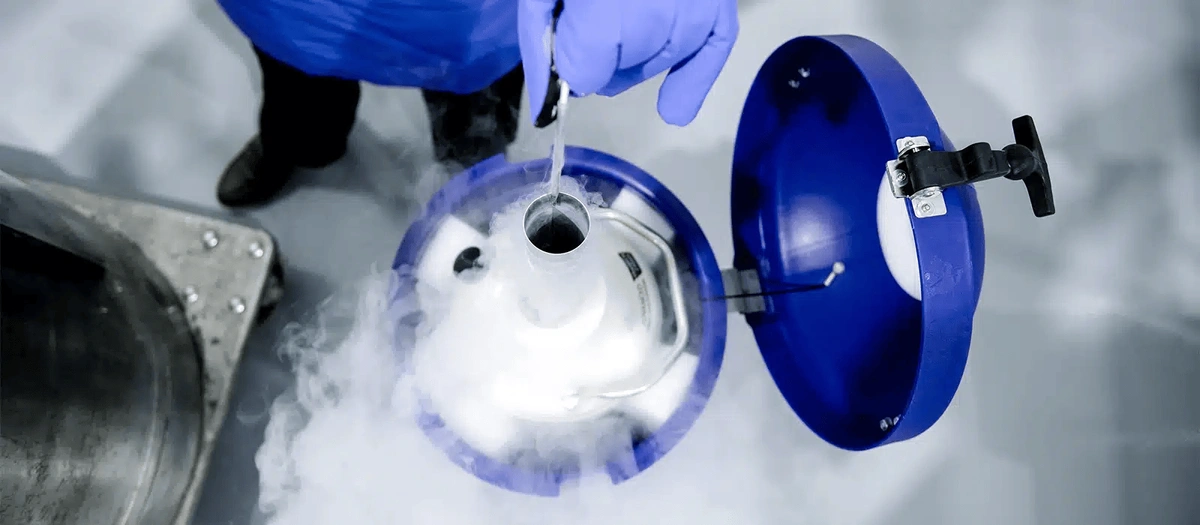Understanding Cryopreservation: How Cold is “Cold”?
by HavenCryo | July 15, 2023
In the world of reproductive medicine, one term often takes center stage: cryopreservation. While it may sound like something straight out of a science fiction novel, cryopreservation is a very real and very important part of fertility treatment and planning. But what exactly does this term mean, and just how “cold” is cryopreservation?
Cryopreservation Defined
Cryopreservation is the process of preserving cells, tissues, or any other biological constructs by cooling them to sub-zero temperatures. This process effectively halts all biological activity, including the biochemical reactions that would normally lead to cell death. This allows the preserved material to be stored for long periods of time – from several years to several decades – while still maintaining viability upon thawing.
How Cold is “Cold”?
When we talk about “cold” in cryopreservation, we’re not referring to a brisk winter day or even the temperature of your home freezer. The process of cryopreservation involves temperatures that are incredibly low, typically around -196 degrees Celsius (-321 degrees Fahrenheit). This is the temperature of liquid nitrogen, which is commonly used in cryopreservation procedures.
At these temperatures, biological activity is not merely slowed; it is virtually stopped. This incredibly cold environment is what allows cells and tissues to be preserved without significant damage or degradation.
The Cryopreservation Process
The process of cryopreservation is not as simple as just freezing cells or tissues. If we were to simply place cells in a freezer, the water inside them would form ice crystals. These ice crystals could puncture cell membranes and cause cell death, rendering the process useless.
To prevent this, the cryopreservation process involves a step called vitrification. Vitrification involves the addition of cryoprotectant agents – substances that protect biological tissue from freezing damage. These agents reduce the formation of ice crystals, allowing the cells to enter a glass-like state when cooled to extremely low temperatures.
Following vitrification, the cells or tissues are cooled very rapidly to their final storage temperature. This rapid cooling further reduces the risk of ice crystal formation.
The Role of Cryopreservation in Reproductive Medicine and at HavenCryo
Cryopreservation plays an indispensable role in the field of reproductive medicine and is a cornerstone of what we do here at HavenCryo. We specialize in the long-term storage of reproductive tissues – namely sperm, eggs, and embryos.
This has substantial benefits for our clients, ranging from individuals to couples. For instance, we can help preserve fertility for cancer patients before they undergo treatments that might compromise their reproductive capabilities. Additionally, for those who wish to delay parenthood for personal, career, or medical reasons, cryopreservation offers an opportunity to plan for the future on their own terms.
In vitro fertilization (IVF) also greatly benefits from cryopreservation. After an IVF cycle, any extra embryos produced can be cryopreserved for future use. This not only provides our clients with more opportunities for successful pregnancy but also reduces the need for additional, costly, and potentially stressful stimulation cycles.
At HavenCryo, we are dedicated to harnessing the remarkable power of cryopreservation and delivering it to our clients with the utmost professionalism and care. We are at the forefront of this continually evolving field, contributing to incredible stories of hope and success. Through the science of freezing, we open up a world of possibilities for those dreaming of parenthood.
For us, understanding just how cold “cold” can be is more than scientific curiosity – it’s a commitment to offering our clients the best in reproductive tissue preservation and the chance to plan their families around their unique timelines and needs.
